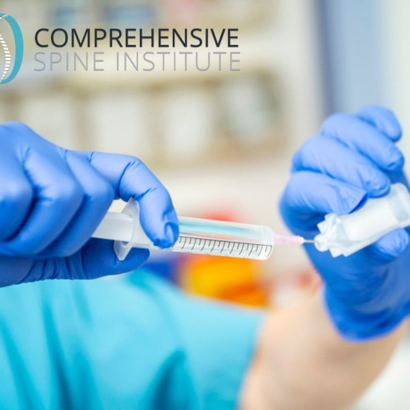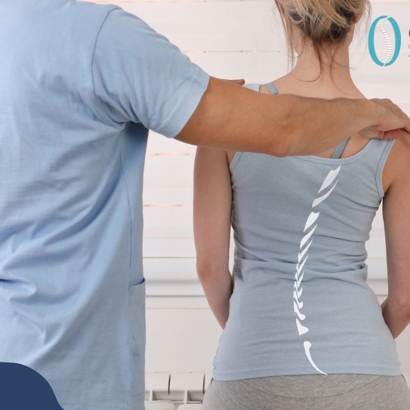
Herniated Disc Treatment in Tampa
What is a Herniated Disc?
A spinal disc herniation, informally and misleadingly called a “slipped disc”, is a medical condition affecting the spine, in which a tear in the outer, fibrous ring (annulus fibrosus) of an intervertebral disc allows the soft, central portion (nucleus pulposus) to leak out.
Contact the professionals at Comprehensive Spine Institute today to learn more about herniated disk treatment in Tampa.
The spine is composed of 23 vertebral discs. 6 are in the neck (cervical region), 12 are in the middle back (thoracic region), and 5 are in the lower back (lumbar region). These discs act as shock absorbers for the spine which endures tremendous pressure on a daily basis.
As described above, a herniated disc occurs when one of these discs tears and the center of the disc leaks out.
Tears are almost always postero-lateral (located toward the back) in nature owing to the presence of the slightly weaker posterior longitudinal ligament in the spinal canal. This tear in the disc ring may result in the release of inflammatory chemical mediators which may directly cause severe pain, even in the absence of nerve root compression.
This is the rationale for the use of anti-inflammatory treatments for pain associated with disc herniation, protrusion, bulge, or disc tear.
A herniated disc is normally a further development of a previously existing disc protrusion, a condition in which the outermost layers of the annulus fibrosus are still intact, but can bulge when the disc is under pressure. This can occur in the cervical, thoracic and lumbar spine and are most commonly caused by aging or acute injury.
What are the Symptoms of a Herniated Disc?
The most common symptom of a herniated disc is pain. For others, a herniated disc may cause no symptoms. For the patients who do feel pain, the top complaints are numbness, weakness, muscle spasms, tingling, pins and needles, burning, stiffness, and sharp, radiating or dull pain.
The symptoms of a herniated disc correlate to the location of the injury. For example, a slipped disc in the cervical spine may cause pain in the neck and arms, whereas a herniation in the lower spine causes lower back discomfort or pain in the lower extremities.
Herniated Disc Symptoms Include:
- Radiating Pain
- Sharp Pain
- Tingling or Numbness
- Sciatic Pain
- Neurological Symptoms
- Stiffness
- Weakness
- Burning Sensation
- Muscle Spasms
What Causes a Herniated Disc?
Herniated Discs are most often caused by the natural aging process and usually occur in middle-aged people. The vertebral discs in the spine are made-up almost entirely of water. Gradually as we age, normal wear-and-tear from movement, posture and other daily activities causes the discs to lose water making them less resilient. This weakening in the disc can lead to tear or rupture.
A traumatic event, such as car accident or sports injury, is another common source of a slipped disc. Heavy lifting and repetitive motion are also frequent causes. Other typical causes of pinched nerves are:
- Natural Aging
- Acute Injury
- Whiplash
- Repetitive Motion
- Degenerative Disc Disease
- Arthritis
- Poor Posture
- Poor Health or Obesity
- Genetics
- Improper Lifting and Twisting
- Repetitive Motion or Overuse
-
Minimal Wait TimeYou shouldn't have to wait a profound amount of time to see a physician we'll get you in, in two weeks or less.
-
Education Is KeyWe believe in educating our patients so they feel empowered when making decisions about their care.
-
4 Convenient LocationsWe are easily accessible with 4 locations that are able to provide the same quality of care.
-
Multi-Specialty PracticeWe pride ourselves on providing our patients with care from physicians who specialize in their needs.
Where can a herniated disc be located?
Herniated Disc in the Lumbar Spine: The lumbar discs are more susceptible to herniation than the cervical and thoracic intervertebral discs because they act as the body's main shock absorbers. They are also the most common cause of sciatica due to the proximity of the sciatic nerve.
Patients often complain of:
- Sharp pain or soreness in the lower back
- Stiffness in the back
- Weakness in the leg or foot
- Tingling pain or pins and needles
- Burning pain
- Discomfort while sitting or standing
- Interruption in sleep because of pain
- Drop foot or difficulty lifting foot
- Radiating pain that travels down the leg, sometimes into the foot
The Latest In Orthopedics
-
 The Case for Epidural Steroid Injections
The Case for Epidural Steroid InjectionsDiscover Relief with Epidural Steroid Injections Living with chronic spinal pain can be exhausting, impacting every ...
Read More -
 Innovative Treatments for Back Pain: Exploring the Latest Advances in Spine Care
Innovative Treatments for Back Pain: Exploring the Latest Advances in Spine CareInnovations in Back Pain Treatment for a Healthier Future Dealing with back pain can take a toll on every aspect of your ...
Read More -
 What Is Spinal Cord Stimulation?
What Is Spinal Cord Stimulation?Spinal cord stimulation (SCS) is a cutting-edge technique that leverages electrical impulses to mitigate chronic pain. ...
Read More -
Understanding Workers' Compensation for Spine Injuries: A Guide for Employees
If you've suffered a spine injury on the job, workers' compensation could be a vital lifeline. This government-mandated ...
Read More


.2408222022228.png)